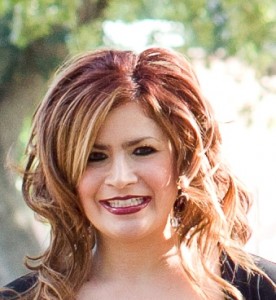 Regina is the proprietor of Stepping Stones Professional Counseling, an outpatient private practice in Mary Esther, Florida that was established in 2009 where she provides individual, group, family, and couple’s counseling. Regina is a Licensed Mental Health Counselor, Board Certified Sex Therapist, Certified Family Mediator, Parent Coordinator, Clinical Supervisor, and holds a Master’s Degree in Counseling Psychology. She resides in Fort Walton Beach, Florida, where she was born and raised, with her husband, 9 year old daughter, and three Labrador Retrievers: Roxy (Chocolate), Gator (Blonde) and Chomper (Black) one of each flavor.
Regina is the proprietor of Stepping Stones Professional Counseling, an outpatient private practice in Mary Esther, Florida that was established in 2009 where she provides individual, group, family, and couple’s counseling. Regina is a Licensed Mental Health Counselor, Board Certified Sex Therapist, Certified Family Mediator, Parent Coordinator, Clinical Supervisor, and holds a Master’s Degree in Counseling Psychology. She resides in Fort Walton Beach, Florida, where she was born and raised, with her husband, 9 year old daughter, and three Labrador Retrievers: Roxy (Chocolate), Gator (Blonde) and Chomper (Black) one of each flavor.
Read on to find out how Regina spends her time in private practice.
A Day In The Life
July 2, 2013
7:15 AM
Woke up, brushed teeth, and got in the shower followed by the rest of my morning routine.
8:30 AM
Arrive at work, greet office manager, check e-mails, look at the Google calendar, and pull files for the clients that I see for the day.
9:00 AM - 5:00 PM
See my 8 clients for the day – in between sessions, I write my case notes.
5:15 PM
Posted social media updates on Twitter and on my business Facebook page
5:30 PM
Before heading home for the day, I visited my business page to update insurance panels and to add a couple of more books on the suggested reading page.
5:45 PM
Headed home. Greeted by my husband and daughter. My husband had the house cleaned and had a delicious meal waiting for me.
7:00 PM
Played games with my family.
8:00 PM
Took a bubble bath and put on my pajamas.
8:30 PM
Snuggled with my 9 year old – read books, told her funny stories of when she was a baby, and tucked her in bed.
9:00 PM
Checked my e-mail – scheduled clients from my Psychology Today profile and added some pins on my Pinterest page.
9:30 PM
My husband and I got in bed and watched some of our favorite recorded programs: Mike and Molly, How I Met your Mother, and Anger Management
11:00 PM
Kissed husband, snuggled with my 3 Labrador retrievers and went to sleep.
Find out more about Regina's practice visit SteppingStonesCounseling.org
If you’d like to submit a day in your life for this series, please contact me here.





As healers, we genuinely like to do our work. Guiding clients through the therapy process and seeing them make progress is why we do what we do. But if you're in private practice, you know there's a lot going on in the back end and that it's crucial to run an efficient and organized business.